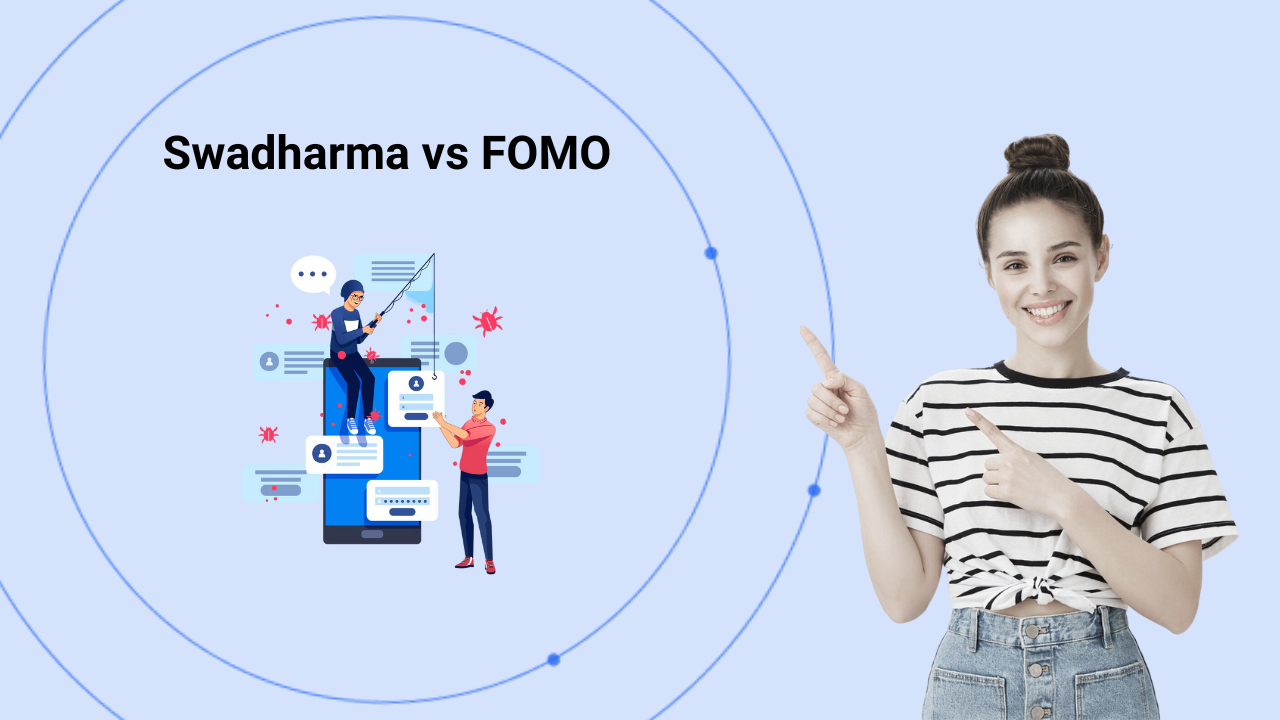The Multi Commodity Exchange of India (MCX) is the leading commodity derivatives exchange in India, facilitating trading in various commodities such as gold, silver, crude oil, and agricultural products. Established in 2003, MCX provides a transparent and regulated platform for price discovery and risk management through commodity futures and options contracts.
This blog will explain what MCX is, how it works, the types of commodities traded, and the benefits and risks of trading on this exchange. Understanding MCX helps investors diversify their portfolios and manage price volatility effectively.
What is EMA in the Stock Market?
The Multi Commodity Exchange of India (MCX) is a commodity derivatives exchange that facilitates trading in futures and options contracts on various commodities. Unlike stock exchanges that deal with equity shares, MCX exclusively focuses on commodities such as metals, energy products, and agricultural items.
MCX provides a platform for price discovery, enabling buyers and sellers to determine the future prices of commodities through transparent bidding. It also helps market participants hedge against price risks, offering protection from volatile commodity prices.
Operating under the regulatory oversight of the Securities and Exchange Board of India (SEBI), MCX ensures a secure trading environment with strict compliance and risk management protocols. This makes it a reliable platform for retail traders, institutional investors, and corporate hedgers.
MCX’s role extends beyond trading, as it contributes to economic growth by enhancing price transparency, ensuring liquidity, and supporting efficient supply chain management for commodities.
How Does MCX Work?
MCX operates as an electronic trading platform that facilitates the buying and selling of commodity futures and options contracts. It provides a transparent and regulated environment for price discovery and risk management. Here’s how MCX works:
1. Commodity Futures and Options Trading
- Commodity Futures: A futures contract is an agreement to buy or sell a specified quantity of a commodity at a predetermined price on a future date. Traders use futures to speculate on price movements or hedge against price risks.
- Commodity Options: Options contracts give traders the right (but not the obligation) to buy (Call option) or sell (Put option) a commodity at a specified price before or on the expiry date.
- Example: A trader expecting gold prices to rise can buy a gold futures contract on MCX, locking in today’s price for a future purchase.
2. Electronic Trading System
- MCX operates through an electronic trading platform that ensures efficient order matching and seamless execution.
- Traders place buy and sell orders through trading terminals or online platforms provided by registered brokers.
- The electronic system matches orders based on price and time priority, ensuring transparency and fairness.
3. Price Discovery Mechanism
- MCX facilitates price discovery through continuous bidding, where buyers and sellers quote prices for commodity contracts.
- Prices fluctuate based on supply and demand dynamics, economic factors, geopolitical events, and market sentiment.
- Example: Crude oil prices on MCX are influenced by global supply-demand trends, OPEC decisions, and geopolitical tensions.
4. Margin and Leverage System
- MCX requires traders to maintain a margin, which is a percentage of the contract value, as a security deposit.
- Initial Margin: Paid when entering a trade to cover potential losses.
- Maintenance Margin: Minimum balance required to keep the position open. If the account balance falls below this level, a margin call is issued.
- Leverage: MCX offers leverage, allowing traders to control large positions with a smaller capital investment. However, leverage amplifies both profits and losses.
5. Settlement and Delivery Mechanism
- Cash Settlement: Most contracts on MCX are cash-settled, meaning the difference between the buying and selling price is settled in cash without physical delivery of the commodity.
- Physical Delivery: Some contracts, like gold and agricultural commodities, allow physical delivery. The delivery process is managed through MCX-approved warehouses and logistics partners.
- Example: A trader buying a gold futures contract can opt for physical delivery by paying the full contract value and taking possession from an approved warehouse.
6. Role of Clearing Corporation
- MCX works with a clearing corporation to ensure secure and transparent trade settlement.
- The clearing corporation acts as a counterparty to both buyers and sellers, guaranteeing trade settlement and managing counterparty risk.
- It collects margins, processes mark-to-market (MTM) settlements, and ensures timely delivery or cash settlement.
7. Regulatory Oversight and Compliance
- MCX is regulated by the Securities and Exchange Board of India (SEBI), ensuring compliance with trading rules, risk management protocols, and investor protection norms.
- SEBI monitors trading activities, prevents market manipulation, and enforces transparency and fairness.
Types of Commodities Traded on MCX
MCX offers a wide range of commodity derivatives, categorised into four main segments: metals, energy products, agricultural commodities, and bullion. These contracts allow traders to hedge against price risks, speculate on future price movements, and diversify their investment portfolios. Here’s a detailed look at the types of commodities traded on MCX:
1. Bullion
- Gold: MCX offers multiple gold contracts, including Gold Mini and Gold Petal, catering to different investment sizes.
- Silver: Silver contracts include Silver Mini, Silver Micro, and Silver KG, providing options for various trading strategies.
- Purpose: Traders use bullion contracts for hedging against inflation, safe-haven investments, and price speculation.
- Example: A jeweller hedging against gold price fluctuations can buy gold futures to lock in a favourable purchase price.
2. Base Metals
- Copper: Widely used in electrical and construction industries, copper contracts reflect global supply-demand dynamics.
- Aluminium: Traded for its industrial applications in packaging, automotive, and construction sectors.
- Zinc and Lead: Used in galvanising steel and battery production, influencing price movements.
- Nickel: Essential for stainless steel production and electric vehicle batteries, driven by global industrial demand.
- Purpose: Base metals are traded for industrial hedging, investment diversification, and price speculation.
- Example: An electric vehicle manufacturer hedging against rising nickel prices buys nickel futures on MCX.
3. Energy Products
- Crude Oil: Crude oil futures on MCX are influenced by global supply-demand dynamics, OPEC decisions, and geopolitical events.
- Natural Gas: Contracts track price movements driven by weather conditions, industrial demand, and geopolitical tensions.
- Purpose: Energy contracts are used for hedging by industries dependent on energy inputs and by traders for speculation.
- Example: An airline hedging against fuel price volatility can buy crude oil futures to lock in prices.
4. Agricultural Commodities
- Spices: Includes contracts for pepper, cardamom, and mentha oil, influenced by seasonal demand and weather conditions.
- Oilseeds and Edible Oils: Traded products include soybean, mustard seed, and crude palm oil, impacted by monsoon patterns and global trade policies.
- Cereals and Pulses: Contracts for wheat and chana (gram) provide hedging opportunities for farmers and food processing companies.
- Cotton and Other Fibres: Cotton contracts are driven by global textile demand and supply dynamics.
- Purpose: Agricultural contracts are used for hedging by farmers, processors, and exporters to manage price risks.
- Example: A textile manufacturer hedging against cotton price increases buys cotton futures on MCX.
5. Multi-Commodity Indices
- MCX iCOMDEX: A series of sectoral indices tracking the performance of various commodity segments, including Bullion, Base Metals, Energy, and Agriculture.
- Purpose: These indices help investors track commodity price trends and diversify portfolios through index-based trading.
- Example: The MCX iCOMDEX Bullion Index tracks the price performance of gold and silver futures.
Benefits of Trading on MCX
Trading on MCX offers several advantages, from price discovery and risk management to portfolio diversification and liquidity. Here’s why MCX is a preferred platform for commodity traders and investors:
1. Price Discovery and Transparency
- Accurate Price Discovery: MCX provides a transparent platform where commodity prices are determined by supply and demand dynamics.
- Market Transparency: Real-time price quotes, order book visibility, and transparent trade execution enhance market transparency.
- Example: The price of crude oil on MCX reflects global supply-demand trends, geopolitical events, and economic indicators.
2. Risk Management and Hedging
- Hedging Against Price Volatility: Commodity producers, processors, and consumers use MCX to hedge against adverse price movements.
- Portfolio Risk Management: Investors diversify their portfolios by including commodities, reducing exposure to equity market volatility.
- Example: A jewellery manufacturer hedges against gold price fluctuations by buying gold futures on MCX.
3. Leverage and Margin Trading
- Leverage: MCX allows traders to control large positions with a smaller capital investment through leverage.
- Margin Trading: Traders maintain a margin deposit to enter positions, maximising potential returns with limited capital.
- Example: A trader buying silver futures with a 10% margin controls a contract worth ₹10 lakh with just ₹1 lakh as the initial investment.
4. High Liquidity and Flexibility
- Liquidity: MCX is one of the most liquid commodity exchanges in India, ensuring ease of entry and exit for traders.
- Flexibility: MCX offers contracts of different sizes, including Mini and Micro contracts, catering to various trading strategies and risk appetites.
- Example: Gold Mini and Gold Petal contracts allow retail investors to participate in gold trading with smaller investments.
5. Diversification and Portfolio Balance
- Diversification: Commodities often move independently of equities and bonds, providing effective portfolio diversification.
- Inflation Hedge: Commodities like gold and crude oil serve as hedges against inflation, preserving purchasing power.
- Example: An investor adding crude oil futures to their equity portfolio reduces exposure to equity market downturns.
6. Safe and Regulated Environment
- Regulatory Oversight: MCX operates under the regulatory framework of the Securities and Exchange Board of India (SEBI), ensuring market integrity and investor protection.
- Security and Compliance: MCX follows strict compliance protocols, risk management practices, and anti-fraud mechanisms.
- Example: SEBI regulates trading margins, position limits, and settlement procedures to prevent market manipulation.
7. Efficient Settlement and Delivery Mechanism
- T+1 Settlement Cycle: Most trades on MCX follow a T+1 settlement cycle, ensuring quick and efficient trade settlement.
- Physical Delivery Option: For certain commodities, MCX allows physical delivery through certified warehouses and logistics partners.
- Example: A trader opting for physical delivery of gold futures collects the gold from an MCX-approved warehouse.
8. Access to Global Commodity Markets
- Global Price Linkage: MCX prices are linked to international benchmarks, reflecting global commodity price movements.
- Arbitrage Opportunities: Traders leverage price differences between MCX and international exchanges for arbitrage opportunities.
- Example: Price movements in Brent crude oil influence crude oil futures on MCX.
Risks of Trading on MCX
While trading on MCX offers numerous benefits, it also involves risks that traders and investors must understand and manage effectively. Here are the key risks associated with commodity trading on MCX:
1. Price Volatility and Market Risk
- High Price Volatility: Commodity prices are highly volatile and can fluctuate due to geopolitical events, economic data releases, supply-demand dynamics, and weather conditions.
- Market Risk: Traders face the risk of adverse price movements, leading to potential losses.
- Example: Crude oil prices can fluctuate significantly due to geopolitical tensions in oil-producing regions or changes in OPEC’s production policies.
2. Leverage and Margin Risk
- High Leverage: MCX allows traders to take leveraged positions, controlling large contracts with a small margin deposit. While leverage magnifies profits, it also amplifies losses.
- Margin Calls: If the market moves against the trader’s position, they may face margin calls, requiring additional funds to maintain the position.
- Example: A trader using 10x leverage faces a total loss if the commodity price moves 10% against their position.
3. Liquidity Risk
- Low Liquidity in Some Contracts: Not all commodity contracts on MCX have high trading volumes. Low liquidity can result in wider bid-ask spreads and difficulty in exiting positions.
- Impact on Prices: In low-liquidity scenarios, even small trades can cause significant price fluctuations.
- Example: Niche agricultural commodities may have lower liquidity compared to gold or crude oil, affecting trade execution.
4. Regulatory and Compliance Risk
- Regulatory Changes: Changes in government policies, import/export regulations, and tax laws can impact commodity prices and trading conditions.
- Compliance Requirements: Traders must comply with SEBI regulations, including position limits, margin requirements, and reporting obligations.
- Example: Changes in import duties on gold or crude oil can impact their prices on MCX.
5. Counterparty and Settlement Risk
- Counterparty Risk: There is a risk that the counterparty to a trade may default on their obligations.
- Settlement Risk: In physical delivery contracts, issues related to delivery logistics, quality, and warehousing may arise.
- Example: A trader opting for physical delivery of agricultural commodities faces risks related to product quality and timely delivery.
6. Speculative Risk and Emotional Trading
- Speculation and Overtrading: The high volatility and leverage in commodity trading can lead to speculative behaviour and overtrading.
- Emotional Trading: Traders influenced by greed or fear may make impulsive decisions, leading to significant losses.
- Example: Panic selling during a market correction results in locking in losses, even if prices recover later.
7. Currency Risk and Global Market Influence
- Currency Risk: MCX commodity prices are linked to global benchmarks in US dollars. Fluctuations in the Indian Rupee (INR) against the US Dollar impact commodity prices.
- Global Market Influence: International events, geopolitical tensions, and economic data releases influence commodity prices on MCX.
- Example: A depreciation of the Indian Rupee against the US Dollar increases the price of imported crude oil on MCX.
8. Technological and Operational Risk
- System Failures: Technical glitches, system outages, and connectivity issues can disrupt trading.
- Cybersecurity Threats: Online trading platforms are vulnerable to cyber-attacks and hacking attempts.
- Example: A system crash during high volatility prevents traders from exiting positions, leading to unexpected losses.
Risk Management Strategies
To mitigate these risks, traders should:
- Diversify their portfolio across multiple commodities and asset classes.
- Use stop-loss orders and position sizing to limit potential losses.
- Maintain sufficient margin levels and avoid over-leveraging.
- Stay informed about market trends, economic data, and regulatory changes.
- Develop a disciplined trading plan and avoid emotional decision-making.
MCX: Driving Commodity Trading in India
MCX provides a transparent and regulated platform for trading commodity derivatives, offering opportunities for price discovery, risk management, and investment diversification. It supports trading in bullion, base metals, energy products, and agricultural commodities. By understanding how MCX works and implementing effective risk management strategies, investors can make informed trading decisions.
Streetgains offers insights and guidance to help investors navigate the MCX market confidently.
Disclaimer:
The content in this blog is intended for informational purposes only and does not constitute investment advice, stock recommendations, or trade calls by Streetgains. The securities and examples mentioned are purely for illustration and are not recommendatory.
Investments in the securities market are subject to market risks. Please read all related documents carefully before investing.
What is MCX? Multi Commodity Exchange of India Explained FAQs:
MCX facilitates trading in various commodity segments, including:
- Bullion: Gold and silver contracts for investment and hedging.
- Base Metals: Copper, aluminium, zinc, lead, and nickel for industrial demand and price speculation.
- Energy Products: Crude oil and natural gas reflecting global supply-demand dynamics.
- Agricultural Commodities: Cotton, mentha oil, and spices influenced by seasonal demand and weather conditions.
- MCX: Exclusively deals with commodity derivatives, including futures and options on metals, energy products, and agricultural items.
- NSE and BSE: Primarily focus on equity shares, bonds, mutual funds, and derivatives on stock indices.
- Example: While NSE and BSE list shares of companies like Reliance Industries, MCX offers crude oil and gold futures contracts.
- Eligible Participants: Retail investors, institutional investors, corporate hedgers, traders, and exporters.
- Requirements:
- Demat and Trading Account: Opened with a SEBI-registered broker.
- KYC Compliance: PAN card, Aadhaar card, and bank details are mandatory.
- Margin Requirement: Traders must maintain an initial margin and meet margin calls.
- Price Discovery Mechanism: Prices are determined through continuous bidding based on supply and demand dynamics.
- Influencing Factors: Global economic trends, geopolitical events, currency fluctuations, seasonal demand, and weather conditions.
- Example: Crude oil prices on MCX are influenced by OPEC’s production decisions and international geopolitical tensions.
- Price Discovery and Transparency: Accurate price discovery through competitive bidding.
- Risk Management: Hedging against price volatility and inflation.
- Leverage and Margin Trading: Control large positions with smaller capital investment.
- Diversification: Commodities provide effective portfolio diversification and inflation hedging.
- Example: Investors use gold futures on MCX to diversify their equity portfolios.
- Economic Growth: Facilitates capital formation, liquidity, and efficient supply chain management.
- Price Stability: Provides transparent price discovery, reducing market manipulation.
- Support to Industries: Enables hedging for commodity producers, processors, and exporters, enhancing economic stability.
- Example: Farmers use MCX agricultural contracts to hedge against crop price fluctuations.
- Price Volatility: High volatility due to global economic events, geopolitical tensions, and seasonal demand.
- Leverage and Margin Risk: Amplified losses due to high leverage.
- Liquidity Risk: Low trading volumes in some contracts affect trade execution.
- Regulatory Risk: Changes in government policies and tax regulations impact commodity prices.
- Example: A margin call during a sudden price drop leads to additional fund requirements.
Streetgains provides research-driven insights, strategic guidance, and educational resources to help investors understand MCX trends, manage risks, and make informed trading decisions.
FAQs:
-
1. How to earn money daily from trading?
Earning money daily from trading involves strategies like day trading, where traders capitalise on small price movements within the same day. Success requires real-time market analysis, quick decision-making, and risk management.
-
2. How to earn money from equity trading?
To earn money from equity trading, you need to buy stocks at a lower price and sell them at a higher price. Success depends on researching companies, analysing stock trends, and using technical or fundamental analysis.
-
3. How to earn money from share trading in India?
In India, share trading offers profit potential through buying and selling stocks on exchanges like the NSE and BSE. To maximise returns, traders should use market research, tools like technical analysis, and risk management strategies.
-
4. How to make money from share trading in India?
Making money from share trading involves selecting the right stocks, timing the market, and implementing trading strategies like swing trading or day trading while staying informed about market trends.
-
5. How to transfer money from a trading account to a bank account?
To transfer money from your trading account to your bank, log into your trading platform, navigate to the funds section, and initiate a withdrawal request. The money will typically be credited to your linked bank account in 1 to 3 days.
-
6. How to withdraw money from a trading account?
You can withdraw funds by logging into your trading account, selecting the withdrawal option, and selecting the amount to transfer to your bank account. Ensure your bank account is linked and follow any steps your broker requires.
Subscribe to our Credits-Based Research System:
Pay only for successful research calls!












